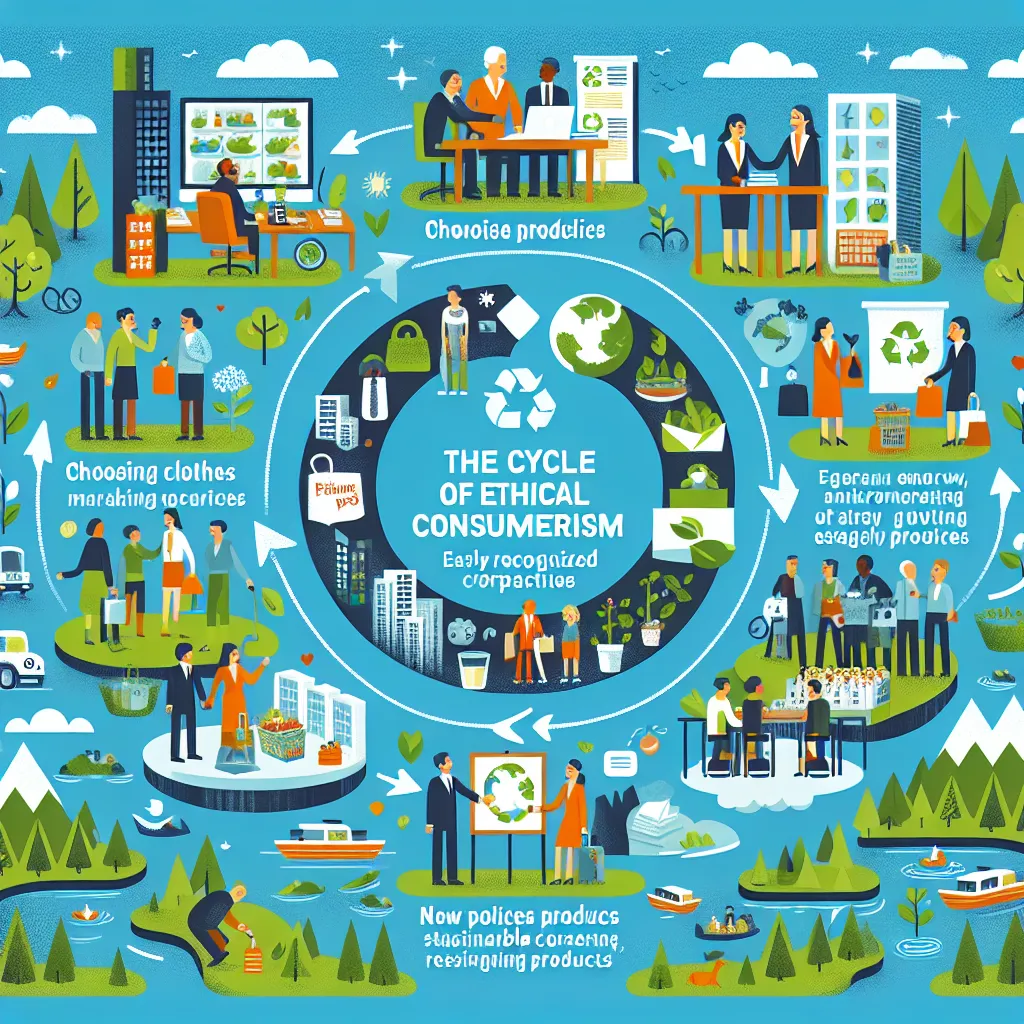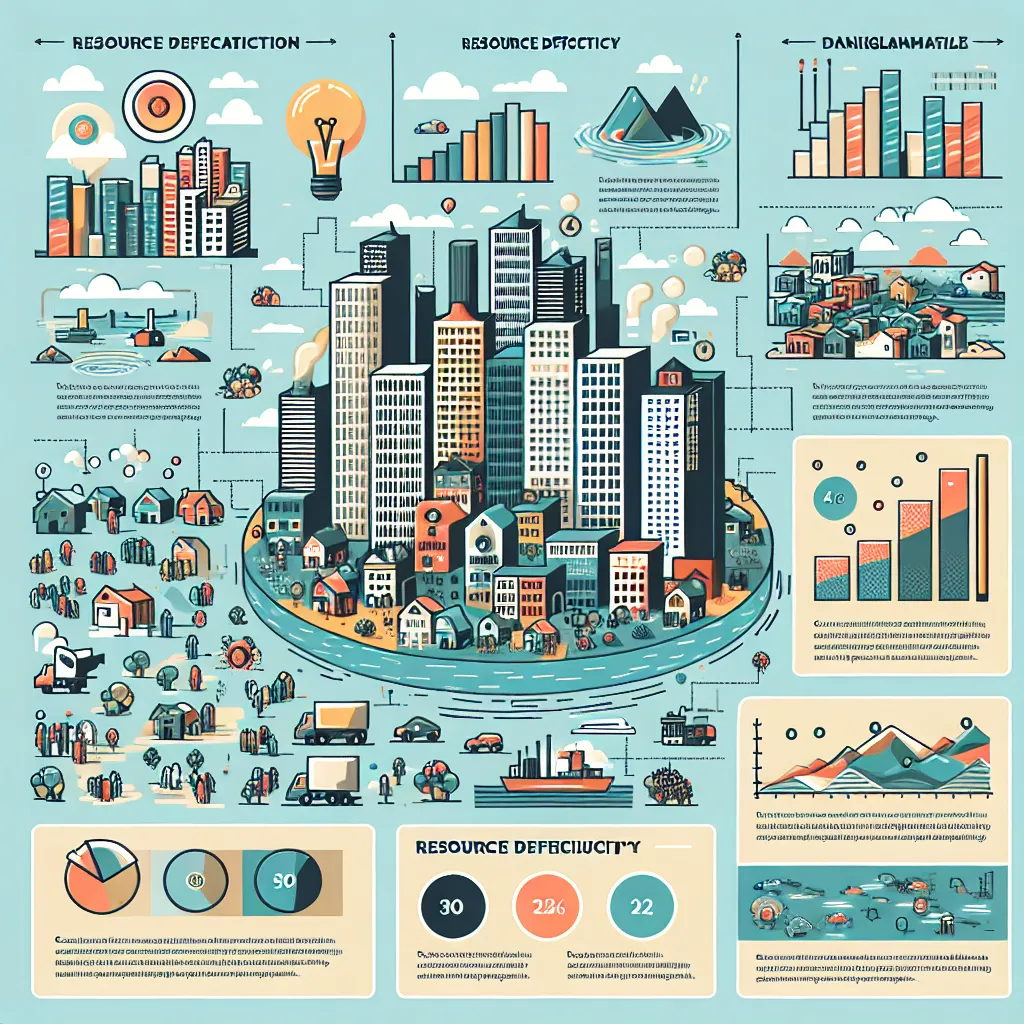As an IELTS Writing Task 2 expert, I’ve noticed a growing trend in questions related to ethical consumerism and waste reduction. This topic has appeared in recent exams and is likely to continue being a popular choice due to its relevance in today’s world. Let’s explore a sample question and learn how to craft a compelling essay on this subject.
Nội dung bài viết
Analyzing the Question
Some people believe that consumers should avoid buying products from companies that are known to damage the environment, while others think individuals cannot change the way companies operate. Discuss both views and give your own opinion.
This question addresses the importance of ethical consumerism in reducing waste and environmental damage. It requires us to consider two opposing viewpoints and provide our own perspective on the matter.
Sample Essay (Band 8-9)
In today’s environmentally conscious society, the debate over consumer responsibility in influencing corporate behavior has gained significant traction. While some argue that boycotting environmentally harmful companies is an effective strategy, others contend that individual actions have little impact on corporate practices. This essay will examine both perspectives before offering my own viewpoint.
Those who advocate for consumer boycotts believe that purchasing power can be a potent tool for change. By refusing to buy products from companies known to damage the environment, consumers can send a clear message that such practices are unacceptable. This approach has shown success in some cases, where companies have been forced to improve their environmental policies due to declining sales. Moreover, this viewpoint emphasizes the collective power of individual choices, arguing that when enough people make ethical purchasing decisions, it can lead to significant shifts in corporate behavior.
On the other hand, skeptics argue that individual consumers lack the influence to alter deeply ingrained corporate practices. They contend that large companies are primarily driven by profit margins and shareholder interests, rather than the ethical concerns of a relatively small portion of their customer base. Furthermore, this perspective highlights the complexity of global supply chains, suggesting that it’s often difficult for consumers to truly know the environmental impact of their purchases. They may argue that systemic changes through government regulations are more effective in curbing environmental damage than individual consumer choices.
In my opinion, while the impact of individual consumer choices may seem limited, the collective power of ethical consumerism should not be underestimated. I believe that consumer behavior, when widespread, can indeed influence corporate decisions. However, I also recognize that this approach alone is insufficient to address the scale of environmental challenges we face. Therefore, I advocate for a dual approach: consumers should strive to make ethical purchasing decisions while also supporting and demanding stronger environmental regulations from governments.
In conclusion, while the debate on the effectiveness of ethical consumerism continues, it’s clear that addressing environmental issues requires action on multiple fronts. Consumers, corporations, and governments all have crucial roles to play in creating a more sustainable future.
(Word count: 329)
 Ethical Consumerism Impact
Ethical Consumerism Impact
Sample Essay (Band 6-7)
Many people are talking about whether we should stop buying things from companies that hurt the environment. Some think this is a good idea, but others say it won’t change how companies work. I will discuss both sides and give my opinion.
People who think we should avoid buying from bad companies believe it can make a difference. When we don’t buy their products, these companies might lose money and decide to change their ways. For example, if many people stop buying plastic bottles, companies might start using more eco-friendly packaging. This shows that our choices as consumers can be powerful.
However, other people think that what we buy doesn’t matter much to big companies. They say that companies only care about making money and won’t change unless the government makes them. These people think it’s too hard for normal people to know which companies are really bad for the environment. They believe that only new laws can force companies to be more environmentally friendly.
In my opinion, I think both sides have good points. While it’s true that one person’s choice might not change a big company, if many people make the same choice, it can have an impact. I believe we should try to buy from good companies when we can, but we should also ask our governments to make stricter rules about protecting the environment.
To conclude, the question of whether consumers can change company behavior is complex. I think the best approach is to make good choices as consumers and also support better environmental laws.
(Word count: 263)
Key Points to Remember When Writing
-
Structure: Both essays follow a clear structure – introduction, body paragraphs discussing each viewpoint, personal opinion, and conclusion. This is crucial for achieving a high band score.
-
Language: The Band 8-9 essay uses more sophisticated vocabulary and complex sentence structures, while the Band 6-7 essay uses simpler language. For example:
- Band 8-9: “This approach has shown success in some cases, where companies have been forced to improve their environmental policies due to declining sales.”
- Band 6-7: “When we don’t buy their products, these companies might lose money and decide to change their ways.”
-
Coherence and Cohesion: Both essays use linking words and phrases to connect ideas, but the Band 8-9 essay does this more effectively and with greater variety.
-
Task Response: Both essays address all parts of the question, but the Band 8-9 essay provides more detailed examples and a more nuanced opinion.
-
Vocabulary: The Band 8-9 essay uses a wider range of vocabulary related to the topic, while the Band 6-7 essay uses more common words.
Important Vocabulary to Remember
-
Ethical consumerism (noun) /ˈeθɪkəl kənˈsjuːmərɪzəm/ – The practice of purchasing products and services that are produced in a way that minimizes social and/or environmental damage.
-
Boycott (verb, noun) /ˈbɔɪkɒt/ – To refuse to buy or use a product or service as a form of protest.
-
Environmental impact (noun) /ɪnˌvaɪrənˈmentl ˈɪmpækt/ – The effect that human activities have on the natural world.
-
Sustainable (adjective) /səˈsteɪnəbl/ – Able to be maintained at a certain rate or level without depleting natural resources or causing ecological damage.
-
Corporate behavior (noun) /ˈkɔːpərət bɪˈheɪvjə/ – The actions and decisions made by a company, especially in relation to social and environmental issues.
-
Supply chain (noun) /səˈplaɪ tʃeɪn/ – The network of organizations involved in the production and distribution of a product.
-
Eco-friendly (adjective) /ˈiːkəʊ ˈfrendli/ – Not harmful to the environment.
-
Systemic changes (noun) /sɪˈstemɪk ˈtʃeɪndʒɪz/ – Fundamental changes that affect an entire system rather than just parts of it.
-
Environmental regulations (noun) /ɪnˌvaɪrənˈmentl ˌreɡjuˈleɪʃnz/ – Rules and directives made by governments to protect the natural environment.
-
Collective power (noun) /kəˈlektɪv ˈpaʊə/ – The ability of a group of people to influence change when acting together.
In conclusion, mastering essays on ethical consumerism and waste reduction requires a good understanding of the key issues, strong language skills, and the ability to present a balanced argument. Practice writing essays on this topic, as it’s likely to appear in future IELTS exams. You might encounter questions about specific aspects of ethical consumerism, such as its impact on developing countries or its role in combating climate change.
To further improve your skills, try writing your own essay on this topic and share it in the comments section below. This practice will help you refine your writing and get valuable feedback. Remember, continuous practice is key to achieving a high band score in IELTS Writing Task 2!
For more insights on sustainable practices and ethical consumerism, you might find these articles helpful:


